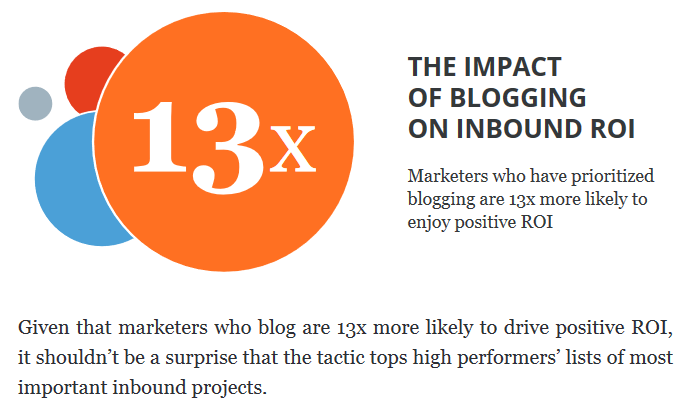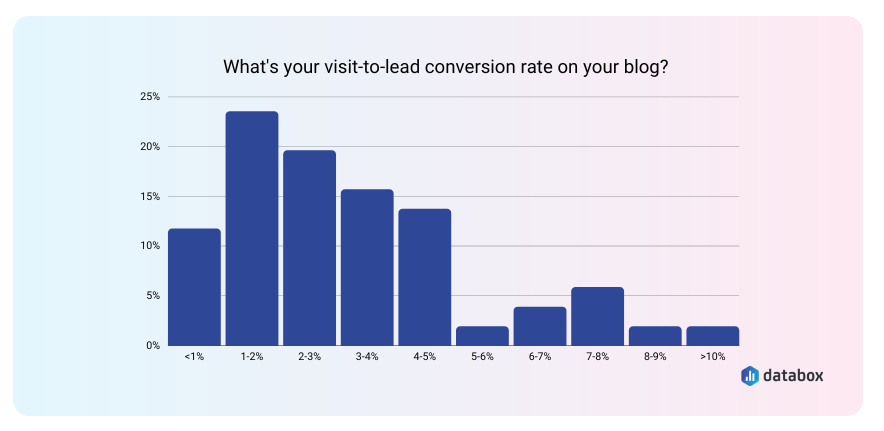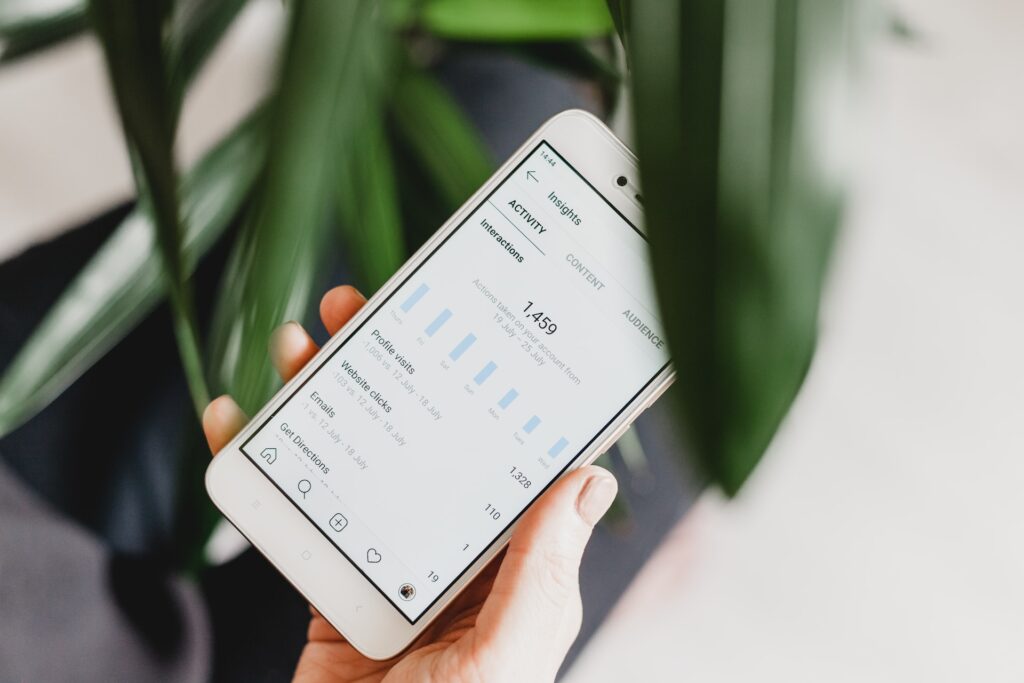[ad_1]
If you’re on the fence about starting a blog, reading this guide on why blogging is important will help you take the plunge.
In this article, we explore 11 reasons you might want to get involved sooner rather than later.
Then, we will cover a few steps you can take to get started ASAP.
Let’s dive in.
Want to get started right away?
You’ll need to find the right keywords, and to help – we highly recommend SEMrush.
What is Blogging?
Blogging is the act of publishing written content to connect with a target audience to convert them into leads and sales.
The content is typically medium to long-form (800 – 3000+ words) and optimized to rank in search engines.
Other names for blogging include:
- Digital publishing
- Content writing
- Content marketing
- Article writing
- Digital journalism
- Blog posts
- Weblog
Blogging can be carried out on multiple channels, but the most common is through a blog or website owned by yourself or your business.
The most popular blogging platform is the self-hosted version of WordPress, which powers 43% of all websites on the internet.
In contrast, the closest competing site used for blogging is Wix at 2.5%.
But no matter your platform, your blog is designed to convert readers into email subscribers and sales by developing an effective content marketing strategy.
Business blogs do this by educating and persuading inbound traffic to become customers.
Individual bloggers may do something similar to promote affiliate offers or drive eyeballs to ads.
Why Blogging is Important: 11 Legit Reasons Your Business Needs a Blog
If building brand awareness and attracting potential customers sounds good to you, you’ll love the following reasons why blogging is important for your business.
1. You Own The Platform
There are tons of marketing channels available online today, from social media such as Facebook to video marketing on sites like YouTube.

But most of these channels have one thing in common: you don’t own them.
This is what makes blogging so valuable because, other than email marketing, it’s the only marketing channel you have complete ownership of.
Specifically, when you own a blog, you have total control over the content, the keywords you target, and your posting schedule.
To find the right keywords, you can use a tool such as SEMrush. And you can get a free trial of this great tool here.
You also have control over your blog design, which helps you emphasize positioning and branding, resulting in more credibility and perceived value.
But, more importantly, your blog isn’t at the mercy of policy and algorithm changes of big tech companies, such as Facebook or Twitter (X).
Building an audience wholeheartedly on platforms you don’t own or control puts you at risk of losing visibility and engagement unexpectedly.
For example, if Facebook stops liking your posts, you can lose a ton of engagement overnight – or worse, lose your page entirely.
If this happens, you must build your audience from scratch, either on the same platform or elsewhere.
A blogging business may rely on traffic from search engines, but if all the search engines go down, at least you’ll have your blog, which can maintain traffic from other sources.
2. Blogging Has a High ROI
According to many industry studies, blogging positively impacts ROI more than any other marketing channel.
For example, this Hubspot report found that marketers prioritizing blogging are 13 times more likely to yield a positive return on investment.

One good reason for this is that blogging is an excellent driver for more leads and conversions.
According to a Databox study, marketers can get up to 3% in visitor-to-lead conversion rate from their blogs.

They also found that most bloggers’ sales conversions are around 2-5%. However, 30% of their respondents get upwards of 10% conversion rates.
Another reason why blogging ROI has high potential is the nature of search and the intent behind the traffic blogs receive.
For example, blogging lets you know what your audience is searching for and helps them find solutions to their problems.
Then, a lot of your traffic will consume your content because they’re specifically searching for the solution, making it a prime opportunity for converting them into customers.
Furthermore, the performance of SEO content can improve in the long run, which cannot be said for social media sites that must post consistently to sustain engagement.
3. Blogging Builds Trust With Your Audience
If you want to persuade your audience to join your email list or become a customer, you need to build trust with them.
And there’s a ton of opportunity to do that with a blog.
Let’s look at a few ways to gain trust with an audience and how a blog helps us do that.
First, communicating your brand has credibility and expertise is no easy task. However, establishing credibility is essential to gain trust with them.
Luckily, a blog is one of those channels that makes this task much easier. Thanks to the nature of long-form content, it provides readers with depth of knowledge which sends positive signals.
They’re more likely to see you as an expert by providing them with high-quality content instead of short and vague social media posts.
Second, trust can be established through consistency and reliability. This can be done by providing valuable content that helps your audience make positive life changes.
Lastly, a blog is an excellent way to demonstrate how you’ve helped others, which leads us to a huge trust signal: social proof.
When your audience can see that others praise your products or services, they automatically trust you more, leading to more leads and sales.
4. You’re Seen as an Authority
An excellent way to establish authority in your niche is through publishing blog content.

This ties in perfectly with the last point because, in most cases, more authority means more trust.
And more trust and authority means more influence.
When you build a successful blog with relevant content, it helps you attract a wider audience. Your brand gets more visibility and, as a result, creates more impact.
And more impact, trust, credibility, and authority, develop a very loyal customer base.
Moreover, establishing more authority with a blog will also increase organic search traffic.
Not only that, but it provides more opportunities to collaborate with other blogs in your niche.
This means more backlinks, resulting in higher domain authority and organic rankings.
5. Blogging Can Drive a Ton of Organic Traffic
Google is the most visited website on the internet, and it holds a 91.9% market share of all search engines.
What’s more, there are 8.5 billion searches performed on the platform every day. That’s 99,000 searches per second!
By carving out a small space on the internet where even a tiny fraction of these people can find you yield vast opportunities for business growth.
For example, Spencer Haws grew Niche Pursuits’ traffic from around 2,500 sessions per day to 21,000 sessions per day.
Fast forward to today, and Niche Pursuits has record traffic days of 75,000 visitors!
We already mentioned that blogging drives the highest ROI than any other marketing channel, so organic traffic is extremely valuable.
By dedicating the time to developing a solid blog content strategy, you increase your chances of generating tons of traffic from Google.
And the best part is that once you hit page one of Google and maintain rankings, you’ll generate free, consistent traffic for years to come.
6. Blogging is Great for Growing an Email List
Blogging is one of the best ways to grow an email list. That’s because you own the platform and can embed opt-in forms directly within the content.
In contrast with social media, people have to click through to a landing page before entering their email address.
This creates an extra step and more friction, resulting in lower conversion rates.
Email marketing is also extremely valuable, with an average ROI of $36 for every $1 spent.
Furthermore, a combination of email marketing with inbound marketing is a match made in heaven.
Here are some of the benefits:
- It builds on the relationship with your readers
- Nurturing an email list is much easier than social media
- Open rates and click-through rates increase as they recognize you from your blog
- An email list builds brand awareness
- You can sell directly to your email list
- You can direct email subscribers back to your blog, adding another traffic source
This is just another reason that makes the blogging business model so valuable.
Lastly, collecting emails on your blog is simple.
7. Blogging Can Help You Grow on Social Media
Another advantage of blogging is that it creates more opportunities to grow on social media.
Why?

Because to grow a following on social networks, you need to share engaging posts.
One way to do that is to repurpose the content you publish on your blog.
Doing so provides you with more content to post on your social media channels and saves you time in the process.
Instead of needing to create dedicated content for Facebook or Twitter (X), you simply copy and paste some of the text from the article, linking back to your site.
This will bring in more traffic for your blog and engage social media followers at the same time.
Another way blogging helps build a social media following is when your readers share your posts.
The more blog traffic you get, the more shares you’ll get. All you need are social media share buttons on your blog posts. You can add these with a WordPress plugin like WPBrigade.
Lastly, blogging and social media marketing go hand in hand because it adds an extra way for followers to engage with your brand.
You can engage with your audience more, provide feedback, and build relationships, gaining more trust and loyalty from them.
8. Blogging Develops Brand Awareness
Brand awareness is essential. Without it, potential customers won’t know you exist or develop enough rapport to want to do business with you.
And business blogs are a perfect way to establish this awareness.
First, the more content you publish, the more chances you’ll show up in organic search results.
Over time, your target audience will keep seeing your brand show for related search terms and begin to trust you more, resulting in more clicks and more leads.
Second, you develop more recognition and authority within your niche, making you stand out from the competition.
Lastly, the more people who know your brand, the more brandable terms people will search for online. This will send positive signals to algorithms on search engines and social media platforms, further contributing to your growth online.
9. Helps Move People Down Your Funnel
Every digital marketing strategy needs a funnel. They guide potential customers from being unaware of the problem to becoming a new customer.
And blog content is the perfect way to move them through each step of the process.
This is what content marketing is all about.
It starts at the top of the funnel where you can share articles that raise reader’s awareness of the problems they face.
This is content that asks questions like “Why,” “What,” and “How.”
For example, “Why does my back hurt at night?”
Next is the middle of the funnel. This is where people know the problem, and they are seeking solutions for it.
This is content like “how to” posts, lead magnets, webinars, product comparisons, and case studies.
Both the top and middle of the funnel are perfect candidates for blog content. Following the best internal linking practices within your content will ensure people move down the funnel.
This is where people are ready to buy from you, and if you’ve done a good job on your blog, your conversions will go through the roof.
10. Continuous Growth is Common
It’s clear to see why blogging is important when you realize all the benefits above.

Plus, when you combine consistent publishing, effective keyword research, and diligently track analytics, maintaining continuous growth becomes the norm.
Moreover, maintained rankings will continue to attract email subscribers, social media shares, and backlinks from other bloggers.
Unlike social media, where you need to keep posting to maintain visibility, ever-green content on a blog can attract organic search traffic for years.
That’s because once a blog has established domain authority and trust with readers, fluctuations in traffic are less likely to occur.
Furthermore, there is the Pareto principle to consider. This universal law says 80% of the results come from 20% of the efforts.
Therefore, the more your blog grows, the more you know what works and what to focus on.
Then, your 20% efforts become more defined and systematized.
At this point, you can hone into what’s working to scale your results exponentially.
11. It Builds Connections With Other Bloggers
Many business owners shy away from collaborating with others in the same industry.
But this is a common mistake business owners make.
Instead of being scared off by competition, a blog can help you establish a unique brand that stands out from everyone else.
When this happens, other businesses don’t see you as a threat and look for ways to work with you instead of against you.
Networking builds stronger connections and blogging makes this process a lot easier.
For example, guest posting on other blogs can help you reach new audiences and develop a brand reputation.
Here are a few steps you can take on your blog to help build connections with other bloggers:
- Make it easy for other blogs to contact you
- Be active on social media
- Interact with other bloggers on their social media channels
- Comment on other blog articles
- Invite people for interviews
- Start a podcast
- Accept guest posts
- Reach out to other blogs for guest posting opportunities
Becoming well-known in your niche and developing relationships provides more opportunities for brand recognition, backlinks, and credibility.
How to Start Blogging This Year
Now you know why blogging is important, how do you get started?
If you’re completely new to the blogging world, here are a few steps you’ll need to take.
- Launch a WordPress blog with Bluehost or GoDaddy
- Choose a decent WordPress theme for SEO
- Find your blog niche
- Harness the power of tools for SEO content writing
- Create a list of content ideas
- Get posting
For an in-depth guide, you can read this post on how to start a blog.
If you’re considering starting your own blog, make sure to check out our Affiliate Lab review. Matt Diggity’s online course will guide you through the whole process of starting, monetizing, and even flipping your blog when you’re ready for a change.
Why Blogging Is Important In Conclusion
It’s clear there are some compelling reasons why blogging is important in business more than ever.
To summarize, it can help you gain trust and authority with your audience and search engines.
Furthermore, business blogging has a high return on investment, and it’s a great way to grow an email list and other marketing channels.
The next step is to start posting, so if you missed it, here’s our in-depth guide post on how to start a blog.
[ad_2]




